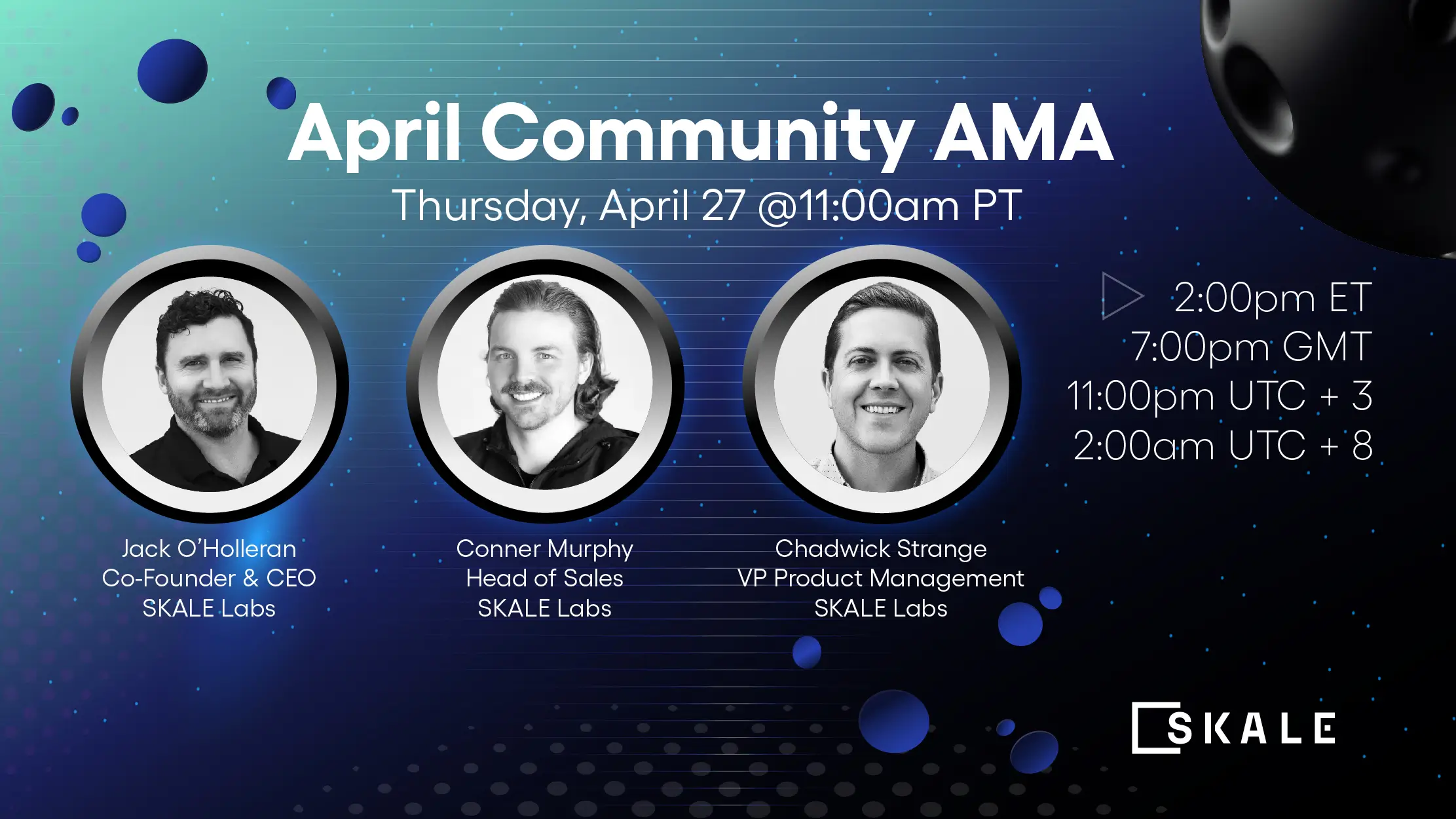The Rise of the Validators | SKALE

The immense success of the validator market has dramatically impacted the success and quantity of Proof-of-Stake Networks (POS). As of the time of this writing, the global POS market cap is 152 Billion with over 92 Billion actively staked into networks and there are over 45 Networks with over 100 Million staked for security. It is now widely accepted that POS is a secure and viable model that will support a world of EVM blockchains. This, however, was not always the case.
I remember the early days in the crypto space, when there were still questions about truths that have proven relatively self-evident — for example, whether there was space for an Ethereum, or any other L1 outside of Bitcoin — and how hotly such ideas used to be debated over the various Slack groups, Discords, and Twitter threads we all frequented.
Even just a few years ago, one of those key questions centered around the efficacy of the validator market: could validators be trusted to provide security, at scale?
The founding team at SKALE saw the validator market forming and recognized that POS would be strong and decentralized primarily due to where the validator market was going. We no longer had to fear that masses of anon people living in their Mom’s basements, ie “validators” would collude to steal assets from POS chains. But back then, it wasn’t so obvious.
The effort to coordinate so many individuals to run nodes was seen as too difficult. Proof of work mining was expensive and focused only on BTC and ETH. Disparate validators provided decentralization, but also, potential volatility.It was often discussed how much it would cost to brute force purchase the bulk power to take over a blockchain.
In hindsight, it is very clear those concerns were wrong. Validators are not mobs of subredditors waiting to brute force the next POS chain that comes online. They are professional dev ops shops run by world class infrastructure and finance teams. The mobs of global participants are actually the delegators/stakers and not those running infrastructure. This model has proven to be effective and secure. We haven't seen a single bribery attack successfully be executed across a major POS chain. We haven't seen a single case of validators colluding to steal money. The only successful attacks we've seen have been against bridges, not collusion or bribery of validators running consensus.
With the success and growth of POS blockchains, the validators have been validated. That mature and trusted security ecosystem is why validator-backed POS systems have now been adopted by Ethereum and so many others in the web3 ecosystem.
There are many reasons why validators have proven secure, but the biggest one centers around the value of reputation, which has proven to be a powerful incentive for validators to not behave poorly. This also means that POS chains now indirectly share security properties.
If a validator were to attack one chain, they would suffer immensely across their entire business — which typically lives not just on one chain, but across many. The gain they would get from one attack would permanently damage them across all networks they support and come with legal and financial retribution.
The reputation value is meaningful and gives security across all chains that are able to recruit top validators on their chains. The top 30% of validators currently run over 90% of POS blockchains, creating a known market of validators that pools security across multiple chains.
Many top blockchain researchers in 2017/2018 were incredibly wary of the validator market and instead made bets on other security measures, accepting slower speeds, higher fees, and more complex user experiences in the pursuit of what they believed to be added security.
However, SKALE was able to make different trade-offs than other blockchain platforms or offchain scaling techniques, maximizing computational power with low costs while still receiving collusion-proof security through a validator market we believed in from the start.
Some modular chains are still making trade-offs on speed and cost based on the security concerns of a half decade ago. They accept lower speeds and performance to claim greater security by settling validation in a separate layer, a (perhaps well-meaning) decision that has proven to be overkill now that validators have proven their efficacy.
In contrast, SKALE is able to create a more user-friendly and cost-effective platform for developers and users alike. It is able to run an unlimited number of fast, on-demand chains with zero gas fees to end users, making it possible for users to deploy their own chains without sacrificing security or decentralization. In fact, very recently Dartmouth Blockchain rated SKALE as the fastest blockchain in the world based on real world evidence.
We at SKALE are excited to see where the validator market will take us in the future and we look forward to continuing to work with validators to build a more secure and decentralized ecosystem for all.
For more information on SKALE
View SKALE’s Network Stats
Join Discord
Documentation on deploying a Dapp to SKALE
Learn more about SKALE $SKL token
About SKALE
SKALE is an Ethereum native, modular blockchain network composed of high-throughput, low-latency blockchains that are optimized for Web3 user experience. SKALE chains offer zero gas fees to end-users and have advanced features such as on-chain file storage, interchain messaging, zero-cost minting, ML/AI smart contracts, and enhanced security features.
The SKALE network enables developers to deploy their own EVM blockchain in minutes without sacrificing speed, security, or decentralization. Welcome to the SKALEverse.
.webp)
.webp)
.webp)





